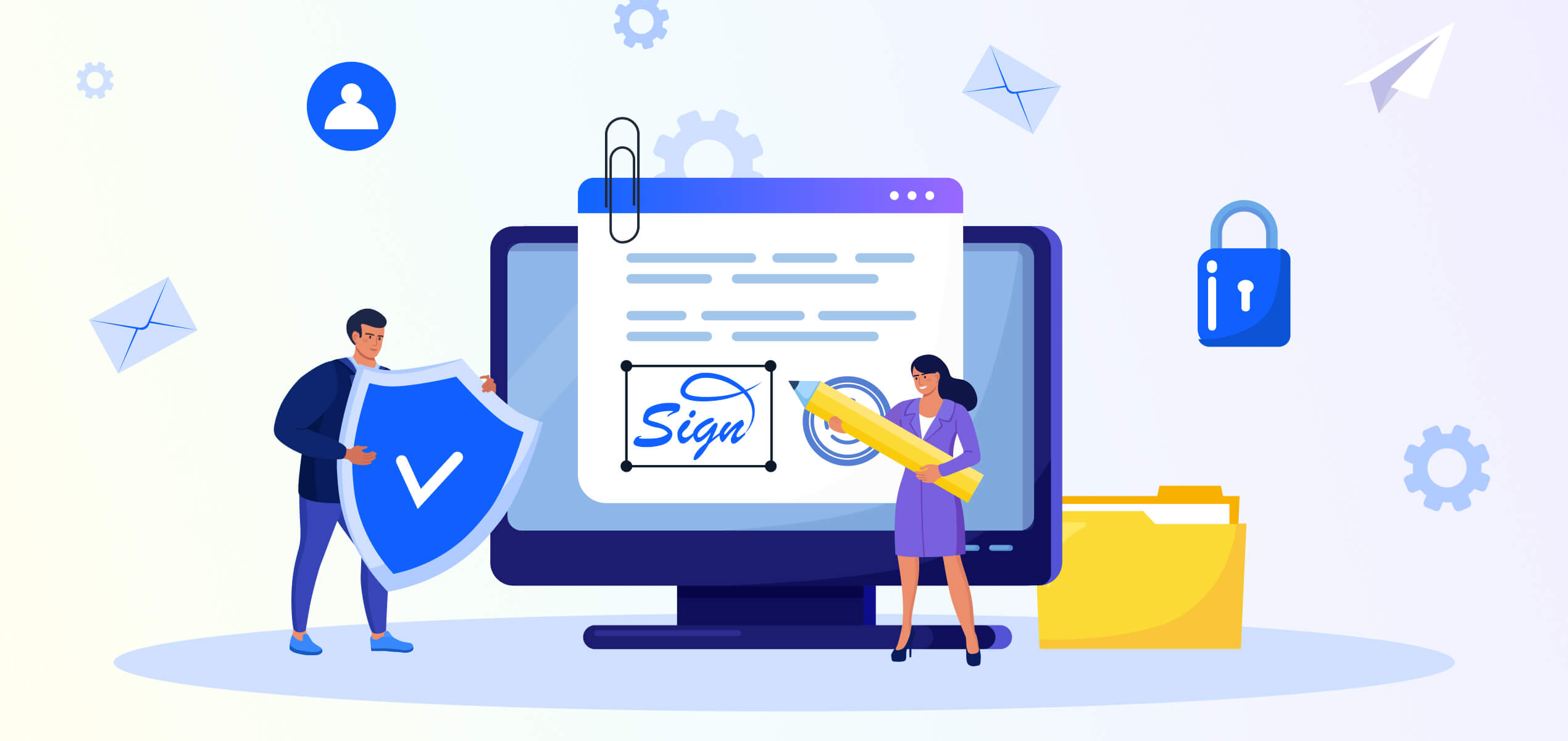The real estate industry is synonymous with paperwork, wouldn’t you agree? From sales agreements, NOCs, leases, deeds, to disclosures and closing documents. The list of documents to sign is endless.
Now, traditionally you would receive the document or have to print it, read it, sign it, go and drop it off OR scan it and mail it back, a time-consuming and frustrating task for many.
What if we told you that you could skip all of these steps and just sign documents completely legally online.
Say hello to digital signatures, a transformative solution that is streamlining property transactions and closures.
Today, we show you how digital signatures are revolutionizing the real estate sector, their benefits, and how you can make the switch to digital signatures to modernize your property dealings, right after reading this!
Why Digital Signatures Are a Must In Real Estate
Digital signatures are the electronic equivalent of handwritten signatures. They use encryption technology to securely sign and verify documents, ensuring legal validity and strong security, making them ideal for real estate transactions. Here’s why they have proven to be a game changer for realtors:
- Speed: Transactions move faster when parties can sign documents instantly, regardless of location.
- Accuracy: Digital systems minimize errors such as missed signatures or incorrect dates.
- Security: Advanced encryption ensures document signatures cannot be tampered with.
- Compliance: Digital signatures comply with global legal frameworks such as the ESIGN Act in the U.S. and eIDAS in the EU, which make digital signatures legal and enforceable.
Key Use Cases of Digital Signatures in Real Estate
Digital signatures are making real estate transactions faster, easier, and more secure. Let’s take a look at how they can be used in different stages of your real estate process:
- Sales Agreements: Purchase agreement or a sales contract, digital signatures expedite the process by allowing all parties to sign electronically. This is particularly useful for multi-party transactions involving buyers, sellers, and agents.
- Lease Agreements: Landlords and tenants can use digital signatures to finalize leases quickly and securely. Automated workflows ensure that all required fields are completed before submission.
- Disclosure Forms: Real estate transactions often require detailed disclosures, such as property condition reports or environmental assessments. Digital signatures ensure these documents are signed and returned promptly.
- Closing Documents: Closings involve multiple documents that need to be signed by various parties, including buyers, sellers, notaries, and lenders. Digital signatures streamline this process, reducing the time it takes to finalize the sale.
- Agency Agreements: Real estate agents can use digital signatures to secure client agreements, ensuring clarity and commitment from the outset.
How to Select an eSignature Platform for Real Estate Professionals
Choosing the right digital signature platform is the first step to streamline your real estate transactions. Try out this checklist to help you select the ideal eSignature solution:
- Legal Compliance: Ensure the platform meets local legal standards (e.g., ESIGN, eIDAS) and provides a reliable audit trail.
- Security: Look for platforms with robust encryption and secure authentication features, like two-factor or identity verification.
- User-Friendliness: Choose a platform that’s simple for both your team and clients to navigate.
- Integration: Ensure the platform can seamlessly integrate with your existing CRM, property management, or document systems.
- Customization: Opt for a platform that allows for custom branding, templates, and workflows tailored to your real estate needs.
- Support: Ensure the platform offers reliable customer support and training resources.
- Cost & Scalability: Choose a platform that fits your budget and can scale as your real estate business grows. For example, platforms like FlexiSign offer affordable plans starting with 100 documents per month.
Integrating Digital Signatures into Your Real Estate Business
Once you’ve selected your digital signature platform, it’s time to seamlessly incorporate it into your real estate workflow. Here’s how you can make the most of it:
- Upload and Organize Documents: Store and manage contracts, lease agreements, and property-related documents in a structured folder system on the platform.
- Send and Receive Documents: Quickly send contracts, sale agreements, and client forms for e-signature
- Pre-saved Signatures: Use pre-saved signatures to sign documents swiftly, saving you time on repetitive tasks.
- Instant Notifications: Receive real-time alerts when documents are signed, so you’re always in the loop without having to chase down signatures.
- Automatic Organization: Digitally signed documents are automatically stored and organized, making it simple to track and retrieve them anytime.
The Future of Real Estate Transactions with Digital Signatures
As a real estate agent, you know how much paperwork is involved in every deal. Digital signatures make all of that easier. No more chasing down clients to sign documents or dealing with piles of paper, everything can be done quickly, securely, and remotely!




